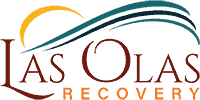
When Does Drug Use Become A Disorder?
Substance Use Disorder (SUD) is a complex condition characterized by compulsive drug use despite harmful consequences. It's essential to recognize that addiction is not a moral failing but a medical condition that requires support and treatment. Substance use becomes a disorder when a person meets certain criteria, including losing control and continuing to use substances despite adverse consequences.
The Road to Substance Use Disorder
People start using drugs for different reasons; maybe they want to relax or have fun with friends. At first, it might not seem like a big deal; it is just something to do now and then. But for some people, things can get out of control without them even realizing it. What started as something fun can turn into something they feel like they need all the time.
Loss of control is a core symptom of substance use disorder. You don't have to hit a "rock bottom" to realize that your drinking or drug use is unhealthy. For many people, the spiral catches them by surprise. Before they know it, they might find themselves using drugs all the time, even when it's causing problems in their life. It's tough because they might not realize it's happening until things get pretty bad. But it's vital to know that it's not their fault, and there are people out there who want to help them get back on track.
Behaviors and Symptoms of SUD
Signs of a substance use disorder vary, but common behaviors and symptoms include:
- Loss of Control: Difficulty in controlling drug use, often leading to consuming larger amounts or using for longer periods than intended.
- Cravings: Strong urges or cravings for the drug, which can be challenging to resist.
- Negative Consequences: Continued use despite experiencing negative consequences in relationships, work, or health.
- Tolerance: Needing more of the substance to achieve the same effects, indicating a tolerance build-up.
- Withdrawal: Experiencing withdrawal symptoms when attempting to quit or cut back on drug use.
Addictive Substances and Risk of SUD
Certain drugs are more addictive than others and can increase the risk of developing a substance use disorder.
Drugs such as heroin, cocaine, methamphetamine, and prescription opioids are highly addictive and pose a greater risk. However, addiction can develop with any substance. Alcohol is one of the most common addictions in the world. Many prescription medications are dangerous when not used as directed.
Vulnerabilities to Substance Use Disorder
Individual vulnerabilities play a significant role in the development of SUD. Factors such as genetics, family history of addiction, trauma, mental health disorders, and environmental influences can increase susceptibility. For marginalized communities, including the LGBTQ+ population, stigma, discrimination, and lack of access to inclusive healthcare can act as barriers to seeking treatment.
Overcoming Stigma and Seeking Help
Breaking the stigma surrounding any substance use disorder is vital in encouraging people to recognize their condition and seek help. Education and empathy are powerful tools in promoting understanding and support for those struggling with SUD. With a compassionate and non-judgmental approach, we can encourage individuals to seek treatment and start their journey.
Encouragement to Seek Treatment
If you or someone you know is experiencing symptoms of a substance use disorder, remember that help is available. Contact a healthcare professional, addiction specialist, or support group for guidance and support. Recovery is possible, and you are not alone on this journey.
In a professional treatment setting, individuals have the opportunity to learn new skills and coping mechanisms to manage cravings, stress, and triggers. Through therapy sessions, educational workshops, and experiential activities, they acquire valuable tools to navigate life without relying on substances.
Consider SUD Treatment Away From Home
There is help and treatment for any substance use disorder, no matter how severe. A remote treatment center can be like a safe haven, away from everyday distractions and pressures. Here, you can focus entirely on yourself and your journey to sobriety. With professionals by your side 24/7, you'll have the support you need every step of the way.
In this environment, you'll find ways to cope with cravings and stress, and you'll know that you're not alone in your struggles. Treatment communities have other people on the same path as you. Often, people form connections and friendships that can last a lifetime. Together, you'll help each other through the ups and downs of recovery, celebrating victories and lifting each other in therapy. In a remote, compassionate setting, you'll have the space and guidance to heal, grow, and rediscover the joy of living life to the fullest without relying on drugs or alcohol.
Remote treatment centers often offer aftercare planning to support individuals transitioning back into their communities. This may include referrals to outpatient programs, support groups, sober living arrangements, and ongoing therapy to ensure continuity of care and long-term success in recovery.
Getting Help For Unhealthy Substance Use
Is addiction affecting you or a loved one? Recovery is a healing journey you can take with the help of professionals, many of whom have been where you have been. It's important to prioritize self-care and accept the care you need to reclaim your life.
Located amidst the serene beauty of Baja California Sur, Las Olas offers a safe and inspiring environment to begin your recovery journey. Experience peace and comfort as you gain the tools to start to recover.
We can help you detox and begin the process of rebuilding your life. Get in touch to learn more about our services. Contact us at (949) 279-1376 or Mexico (612) 153-5726 to learn more about our programs and amenities.
